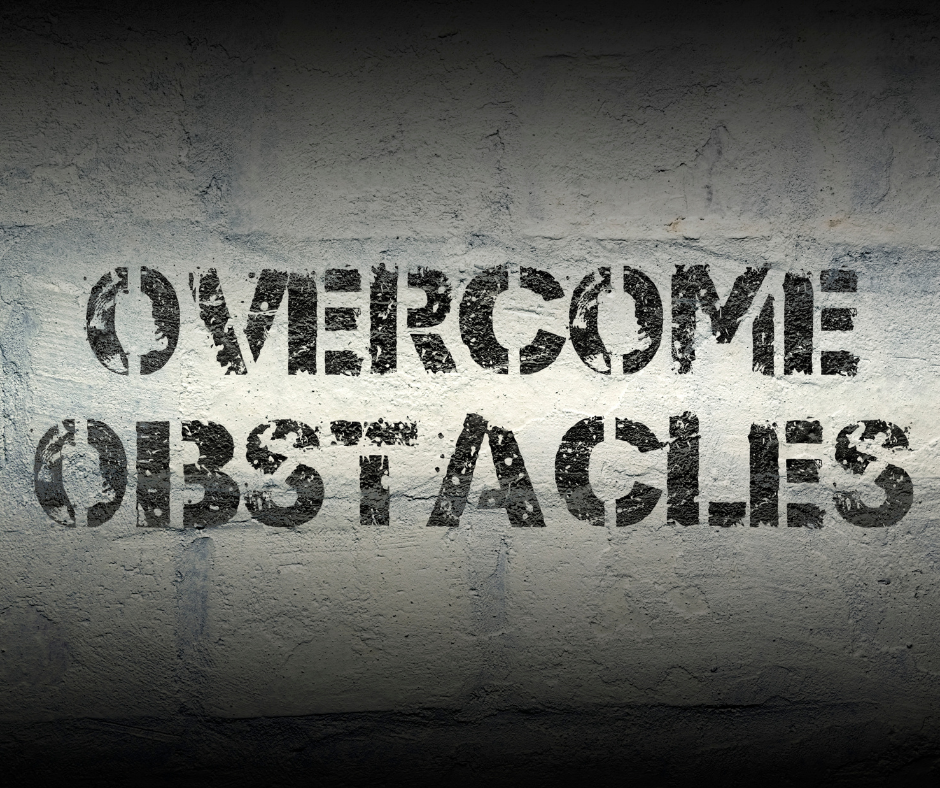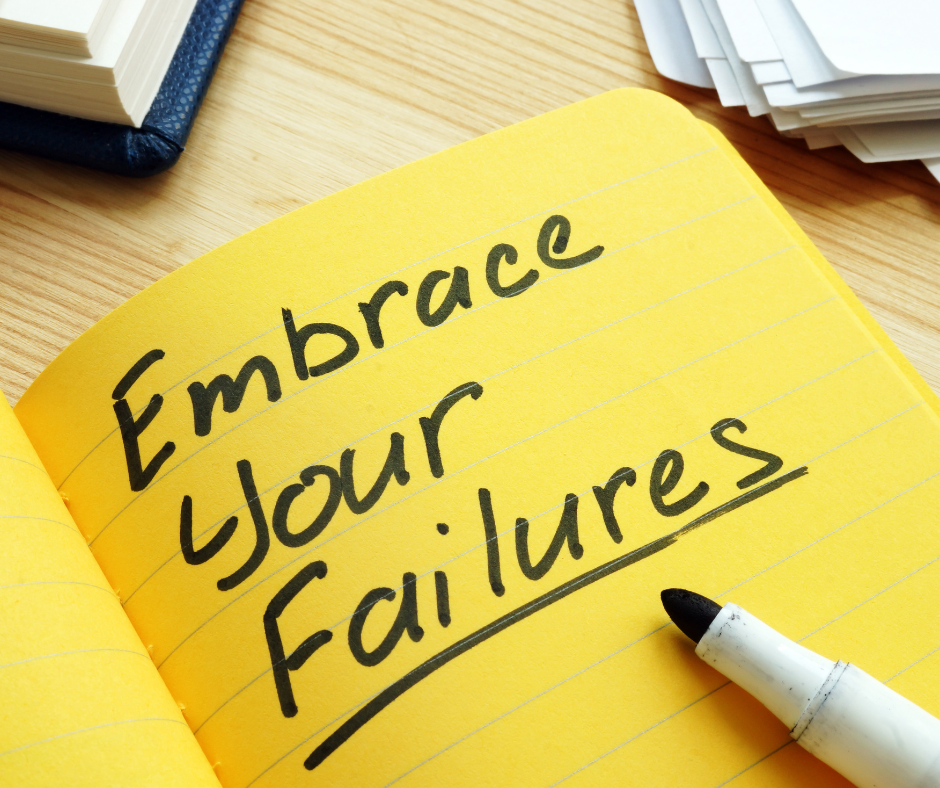Whether it’s looking for a new job, taking on a new challenge, or the smaller, day-to-day stuff, everyone has heard that little voice in their head tell them they aren’t good enough at some point. For many people, however, that feeling is more frequent, and they are plagued by doubt and self-doubt. Self-doubt is frequently rooted in our childhood experiences. If we grow up believing we are good enough, we may believe we are competent in our choices and confident in our abilities. Similarly, if we grow up believing we will never be good enough, we will limit what we do, believe we do not deserve to do well, and lack confidence in our accomplishments. Recognize the influence that self-doubt has. when you say you can’t or doubt yourself, the brain accepts the imagery and feelings as real and turns them into actions. This is because the brain cannot tell the difference between imagined and real responses. Everything you are thinking about right now will be supported and realized by the human system because it is so strong. Create a more complete image of yourself. Remember that there are numerous ways to perceive yourself because we are multidimensional beings. You are more than your job title or family role; you are an infinite number of things with infinite value. So we must recognize that we have many qualities and develop a sense that these qualities are valuable in various ways. The next step is to actually believe ourselves when we say these are valuable qualities to consider when appreciating our own self-worth. There will have been times in your life when you succeeded and felt fantastic without a shadow of a doubt. You can start overcoming doubt by recalling these instances, but take it a step further and consider the future as well. Imagine carrying out the task at hand and experiencing success. Continually imagine yourself moving through the situation with more assurance, hear yourself saying that you believe you can succeed, and then actually experience how that feels. When something goes wrong, reconsider your response. Doubting yourself is inextricably linked to the fear of failure, but what if failure wasn’t such a bad thing? Accept that mistakes are unavoidable; if you’re not making them, you’re not learning. The important thing is not to blame yourself, but to assess what went wrong. This way, you can see yourself as someone who is constantly learning and improving, rather than someone who is constantly making mistakes and failing.
Nourishing the Mind: Unveiling the Powerful Connection Between Diet and Women’s Mental Health
In the hustle and bustle of modern life, it’s easy to overlook the profound impact our diet can have on our mental well-being. The saying, “you are what you eat,” holds more truth than we might realize, especially when it comes to nurturing our mental health. In this fast-paced era, women, in particular, often find themselves juggling multiple roles, from career pursuits to family responsibilities. Amidst this whirlwind, paying attention to what goes on our plates might just be the key to unlocking a healthier, happier mind. #MindfulEating #WomenAndWellness The Nutrient Symphony Our brains, the command centers orchestrating every aspect of our lives, require a delicate balance of nutrients to function optimally. Just as a finely tuned symphony relies on the harmonious interplay of various instruments, our brains thrive when fueled by a diverse range of nutrients. Essential fatty acids, vitamins, minerals, and antioxidants are the notes that compose the melody of mental well-being. Consider incorporating Omega-3 fatty acids, found in fatty fish, flaxseeds, and walnuts, into your diet. These healthy fats play a crucial role in brain function and have been linked to a reduced risk of depression. Meanwhile, antioxidant-rich fruits and vegetables, like berries and leafy greens, act as the virtuosos protecting our brains from oxidative stress. Gut-Brain Axis: The Silent Conductor The intricate relationship between our gut and brain, known as the gut-brain axis, is a symphony conductor often underestimated. What we eat directly influences the composition of our gut microbiota, the trillions of microorganisms residing in our digestive tract. This microbial community doesn’t just impact digestion; it significantly influences our mental health. Fermented foods like yogurt, kefir, and sauerkraut can introduce beneficial probiotics to our gut, promoting a healthy microbiome. Studies suggest that a balanced gut microbiota may positively affect mood and reduce symptoms of anxiety and depression. So, next time you enjoy a bowl of yogurt, know that you’re not just nourishing your body but also your mind. #GutHealth #MoodFood Mindful Eating: A Practice for Well-being In a world filled with fad diets and quick fixes, the concept of mindful eating emerges as a beacon of sustainable wellness. Mindful eating is not about restrictions or counting calories; it’s a practice that encourages being present during meals, savoring each bite, and listening to your body’s hunger and fullness cues. For busy women, incorporating mindfulness into meals can be a game-changer. Instead of viewing eating as a task to be rushed through, consider it a moment of self-care. Turn off the screens, savor the flavors, and allow your mind to unwind. This intentional approach to eating can not only foster a healthier relationship with food but also contribute to a more positive mental state. #MindfulLiving #SelfCare Women’s Health: The Unique Considerations It’s crucial to acknowledge that women’s mental health needs are often nuanced and unique. Factors such as hormonal fluctuations, pregnancy, and menopause can introduce additional considerations. Iron-rich foods, like lean meats and leafy greens, become especially important for women to prevent fatigue and support cognitive function. Additionally, foods rich in folate, such as lentils and fortified cereals, play a role in mental well-being, particularly during pregnancy. Moreover, the societal pressures and expectations placed on women can contribute to stress and anxiety. Building a support system, engaging in regular physical activity, and seeking professional help when needed are vital components of holistic mental health care. Remember, taking care of your mind is not a luxury but a necessity. #WomenEmpowerment #MentalHealthMatters Conclusion: A Symphony of Well-being In the grand orchestration of life, our mental well-being takes center stage. As women navigating the complexities of the modern world, it’s essential to recognize the pivotal role our diet plays in this intricate composition. From the nutrients that fuel our brain to the symbiotic relationship between our gut and mind, every bite contributes to the melody of our well-being. So, let’s approach our meals with intention, savoring the opportunity to nourish not just our bodies but our minds. Embrace the practice of mindful eating, and remember that self-care is not selfish—it’s a fundamental act of love towards yourself. As we prioritize our mental health through our dietary choices, we not only empower ourselves but also contribute to a harmonious world where women’s well-being is a melody that resonates with strength and resilience. #NourishYourMind #WellnessJourney
An Empowered Woman is a Powerful Woman: Shaping Tomorrow’s Leaders Today By Irtaza Bilal, Founder of Go Daughters
In a world where strength is often measured by physical might or material wealth, the true power lies in the resilience, courage, and determination of women. When a woman is empowered, she not only transforms her own life but becomes a beacon of hope, a force for change, and a role model for future generations. Empowerment is not just about giving women the tools to succeed; it’s about nurturing their inherent abilities, amplifying their voices, and ensuring they have a seat at the table. Today, more than ever, we need to recognize the critical role that empowered women play in shaping our societies, economies, and futures. Empowerment begins with education. It’s the cornerstone of independence and the gateway to opportunities. Every girl deserves the chance to learn, to dream, and to achieve. By investing in girls’ education, we invest in a future where women can lead with confidence and competence. This is not just a matter of equity; it’s a matter of survival for our communities and our world. The urgency to act cannot be overstated. Each day that passes without addressing the inequalities women face is a day of potential lost, a future unrealized. We must take action now to break down the barriers that hold women back—whether they be cultural, economic, or political. Empowerment also means supporting women in their roles as mothers, caregivers, and community leaders. It means creating environments where they can thrive, balancing their personal and professional lives without compromise. This balance is not a luxury; it’s a necessity for the health and well-being of our societies. The time to act is now. Empower a woman, and you empower a nation. Let’s work together to ensure that every woman has the chance to reach her full potential. The future depends on it.
Overcoming the Fear of Failure: A Guide to Empowering Women
Fear of failure can paralyze even the most capable women, especially those who have faced life’s toughest challenges. But what if failure was not something to fear, but something to embrace? What if it was a powerful force that could propel you to heights you never imagined? Why Women Fear Failure Society often holds women to higher standards, expecting perfection in every role—from motherhood to career. For widows, this pressure can be even more intense, with societal expectations adding to the burden of loss. Understanding this fear is the first step toward conquering it. The Power of Vulnerability Acknowledging your fear of failure is not a weakness; it’s a strength. When you are vulnerable, you open yourself up to growth. Embrace your fear and recognize that it is a natural part of taking risks and pursuing your dreams. Strategies to Empower Accept Imperfection: Embrace your imperfections as part of your unique journey. Perfect is an illusion; progress is what truly matters. Take Calculated Risks: Don’t let fear hold you back from trying new things. Start small, and as you gain confidence, take bigger steps toward your goals. Build a Support Network: Surround yourself with other women who understand the challenges of overcoming failure. Their support will be invaluable as you push past your fears. Learn from Each Experience: Each failure is a lesson in disguise. Analyze what went wrong, and use that knowledge to do better next time. Take Action Now Challenge yourself today to do something that scares you. Whether it’s speaking up in a meeting, pursuing a new career path, or simply trying something outside your comfort zone, remember that failure is just another step on the road to success. Empower yourself by facing your fears head-on and turning them into opportunities for growth.
Embracing Failure: Turning Setbacks into Stepping Stones for Women
Failure is not the end—it’s a beginning. Women across the world often face immense pressure to succeed, sometimes forgetting that setbacks are part of the journey. Embracing failure isn’t about accepting defeat; it’s about transforming it into a stepping stone toward greater success. Understanding Failure Women, especially those in vulnerable communities, often experience failure as a defining moment. It’s essential to shift this perspective. Failure is merely feedback, an opportunity to learn, grow, and come back stronger. By changing how we view failure, we empower ourselves to take risks and push beyond our comfort zones. Building Confidence Through Adversity Confidence isn’t about never failing; it’s about knowing you can rise again. For women, especially widows who may already feel marginalized, each failure can chip away at self-esteem. To build confidence, start by celebrating small victories and recognizing your resilience. Reflect on past challenges and how you’ve overcome them. This reflection fosters self-belief and prepares you to face future obstacles with courage. Strategies for Resilience Reframe Your Mindset: Understand that failure is not a reflection of your worth. Reframe setbacks as opportunities to learn. Seek Support: Surround yourself with a community that uplifts you. Share your struggles and triumphs with others who understand your journey. Set Realistic Goals: Break down your goals into smaller, manageable steps. This makes the path to success more achievable and less overwhelming. Practice Self-Compassion: Be kind to yourself during setbacks. Self-compassion fuels resilience, allowing you to recover from failure with grace. Take Action Now Embrace failure today. The next time you face a setback, remember it’s a stepping stone, not a stumbling block. Confidence and resilience aren’t built in moments of comfort—they’re forged in the fire of adversity. Embrace each failure as a step closer to your ultimate success.





